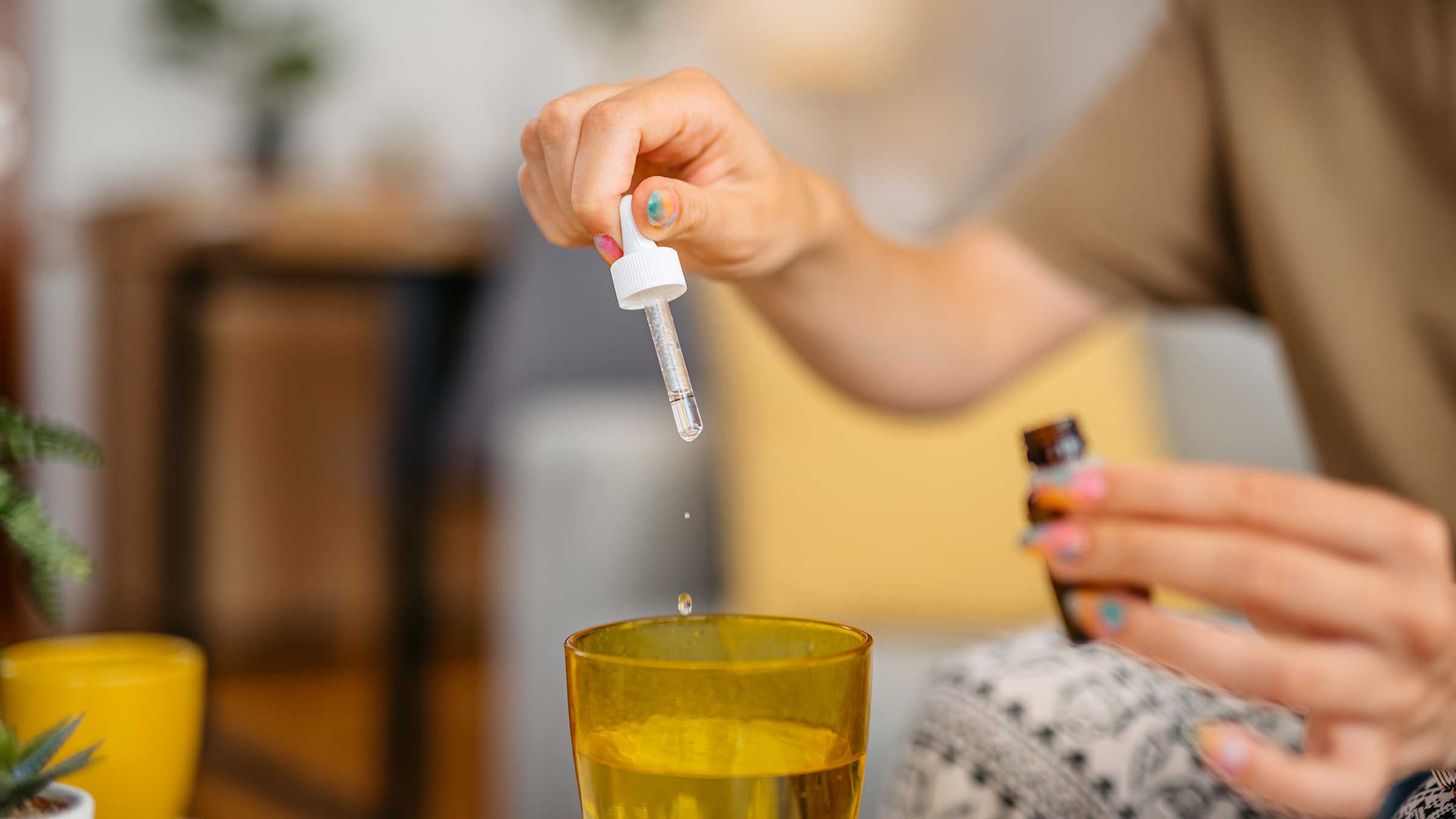
The body needs iodine for the thyroid to function properly. It can’t make iodine on its own, though, so we need to get it from our diet.
Does that mean you need to take a specific iodine supplement to ensure proper thyroid function?
Probably not. Let’s look at how it works, and why Americans usually get enough of iodine:
What is iodine, and where can it be found naturally?
Iodine is found mainly in marine sources, such as kelp and seafood. While many table salts have iodine added to them, sea salt has only a tiny bit of naturally occurring iodine.
Many Americans also get iodine into their diets through cow’s milk, because there’s iodine in cow feed. An iodine-based cleanser often used to clean cow udders before milking can also contribute to iodine levels in milk.
Milk from grass-fed cows does have less iodine than milk from grain-fed cows.
What does iodine do in the body? What happens if we don’t get enough iodine?
Iodine is essential to creating thyroid hormone, which affects nearly every bodily function.
Extreme, long-standing iodine deficiency can trigger the pituitary gland to make the thyroid grow larger as it looks to capture and maximize every whiff of iodine it encounters. This growth of the thyroid is what we call a goiter.
Iodine deficiency is rare among American adults because of iodized salt in our food.
However, if you’re from a country that doesn’t supplement its food with iodine, thyroid deficiency and goiters are more common. Here in Columbus, we have one of the largest Somali communities in the nation. Somalia is one of many countries that doesn’t provide population-wide iodine supplementation, so more people there have iodine deficiencies.
As an endocrinologist in central Ohio, I sometimes see iodine-deficient adults arrive from Somalia with an enlarged thyroid gland that’s desperate for iodine, and as soon as they begin eating American food, they develop hyperthyroidism because their thyroid was so primed to take in iodine. It may take some time for their thyroid to balance itself.
Who needs an iodine supplement?
The recommendation for adults generally is 150 mcg of iodine a day.
Most adults who live in a country that iodizes salt don’t need iodine supplementation; they already get enough iodine from their food.
If you have hypothyroidism and are being treated with medication, you don’t need any iodine at all, because your medication provides your thyroid hormone.
Some people do have restrictive dietary issues, such as celiac disease, or they’ve otherwise gone out of their way to avoid processed foods. If they don’t have any way to consume iodized salt, they might need an iodine supplement of some sort and should work with their primary care provider to determine whether they have a deficiency.
Iodine and pregnancy
It’s important to get adequate iodine during pregnancy, because a fetus doesn’t make its own thyroid hormone until about 18 weeks of gestation. The baby needs to get its thyroid hormone from their parent, especially in the first trimester.
Some studies have shown that even mild to moderate iodine deficiency in pregnancy can lead to cognitive delays in babies. Some small studies have hinted at a connection to the development of behavioral abnormalities, such as increased incidence of ADHD.
The good news is that most people have plenty of iodine throughout pregnancy. The American Thyroid Association guidelines recommend 150 mcg of extra iodine supplemented in pregnancy, and most prenatal vitamins contain this much iodine.
What if I get too much iodine?
Fortunately, iodine toxicity is forgiving. While the daily recommendation for adults is 150 mcg, it takes more than 500 mcg per day of iodine to be considered a toxic amount.
If you do regularly consume too much iodine, it can actually cause the thyroid to stop functioning.
How do I know if I’m not getting enough iodine, or getting too much?
A simple urine test can show how much iodine is in the tissues of your body. If you or your health care provider are worried about how much you’re absorbing, they can order that test for you.
Why is salt iodized? Does it matter if my salt at home is iodized?
For many decades, Americans’ primary source of iodine has been from salt. Iodized salt first appeared on shelves more than 100 years ago.
The American Thyroid Association, U.S. Preventative Services Task Force, the World Health Organization and other public health organizations agree that the best way to achieve good thyroid health and avoid catastrophic thyroid deficiency in infants is to expose the population to iodine through salt. Salt is cheap, widely available and easy to absorb.
What if you don’t buy iodized salt? If you ever eat anything processed — commercially baked bread, for example — it probably has iodized salt in it, especially if you live in the United States, Canada or western Europe.
What should I do if I have hypothyroidism symptoms?
Symptoms of hypothyroidism are nonspecific. Fatigue, weight gain, brain fog, dry skin, constipation, etc. — these all could be caused by myriad health conditions. Check in with your primary care provider, who can determine what other factors might be at play and can order a blood test to check your TSH levels.
If you have a slightly abnormal TSH test, you might even re-check six weeks later to discover that TSH levels have returned to normal without thyroid medication. As an endocrinologist, I hesitate to give a lifelong diagnosis of hypothyroidism until we’re sure that’s the cause of your symptoms. Your first step is to work with your primary health care provider as a team to find solutions.

Concerned about thyroid symptoms?
Our specialists can help.
See how Ohio State cares for thyroid disorders




